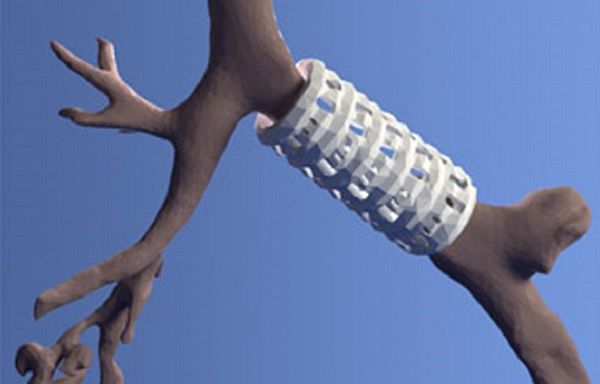 Researchers from University of Michigan, Ann Arbor have developed a 3D printed implant that saved the lives of three young boys with tracheobronchomalacia (TBM), a rare disease that causes the upper airway to collapse during normal breathing. This condition, while treatable in adults using traditional stents, poses a challenge in children due to the fact that the windpipe continues to grow until they turn into adults. To overcome this challenge, the team created 3D printed implants that were not only customized to each patient, but also had the ability to expand and grow along with the child’s growing windpipe.
Researchers from University of Michigan, Ann Arbor have developed a 3D printed implant that saved the lives of three young boys with tracheobronchomalacia (TBM), a rare disease that causes the upper airway to collapse during normal breathing. This condition, while treatable in adults using traditional stents, poses a challenge in children due to the fact that the windpipe continues to grow until they turn into adults. To overcome this challenge, the team created 3D printed implants that were not only customized to each patient, but also had the ability to expand and grow along with the child’s growing windpipe.
The study, published in Science Translational Medicine, used hollow, tube-shaped implants made from a biodegradable polymer known as polycaprolactone (PCL), which slowly dissolves into harmless by-products over a period of 3-4 years and is excreted as waste. Children who survive the disease through the first few years usually develop stronger airways and overcome the disorder, with no signs of the near-fatal disease they had as newborns. The degradation profile of the material used to create the implant thus fits perfectly with the time taken by the child to recover from the disease.
Emergency FDA clearance was granted for this study due to the urgency of the three cases, but a further clinical trial with 30 children is now set to take place to validate the efficacy of the implants.
Study in Science Translational Medicine: Mitigation of tracheobronchomalacia with 3D-printed personalized medical devices in pediatric patients…
The post Flexible Printed Throat Implants Save Three Infants appeared first on Medgadget.
